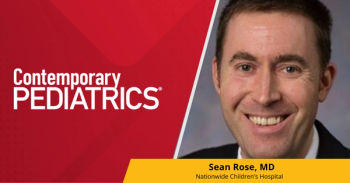
- Consultant for Pediatricians Vol 10 No 1
- Volume 10
- Issue 1
Assigning Blame in Medicine: Where Are We Headed?
Warning: this is a column about political correctness. If you find it impossible to be judgmental in any situation, or are incapable of offering decisive opinions about anything, you are advised to go no further-your feelings will be hurt.
“If You Open Your Mind Too Much, Your Brain Will Fall Out”
-- Title of a song by Tim Michin
Warning: this is a column about political correctness. If you find it impossible to be judgmental in any situation, or are incapable of offering decisive opinions about anything, you are advised to go no further-your feelings will be hurt.
The way in which some people currently assess blame is a path containing at least 3 steps. These steps range from the useful to the ridiculous-from an approach to improving care that takes human tendencies and weaknesses into consideration (Step 1) to the dangerous denial of reality that leads to persistent pernicious pollyannaism (Step 3). Following this path will ultimately lead to our brains falling out.
1. HUMAN FACTORS ENGINEERING
Don't blame people: things are poorly designed
Human factors engineering is the intersection of engineering, psychology, and medicine. It seeks to improve care and reduce errors by simplifying and standardizing systems (eg, having all the items in all the crash carts in an institution standardized in dose, size, and location in the drawer), reducing noise, improving lighting, and providing backup and needed redundancy (eg, having an auditory alarm on a monitor backed up by flashing lights, even multicolored lights). Human factors engineering is valuable and logical. It can save lives.
2. SYSTEM ERROR TRUMPS HUMAN ERROR
Don't blame anyone: the system is at fault
Now we are on shakier ground. This philosophy may sometimes be seen in action at hospital morbidity and mortality (M & M) conferences. These conferences discuss errors of commission or omission which led-or might have led-to patient illness or death. The purpose of these conferences is to prevent recurrences of errors by educating the providers of medical care. Thus, it is patient safety that is the concern here. Blame is often cast upon “the system” (eg, the computer system, the system of signing out patients to the next shift, or the system of training physicians). However, what if there are persons who deserve some blame? If you ask this question at an M & M conference, you are considered, at best, a dinosaur and a victim of outdated thinking. At worst, you are-gasp!-politically incorrect.
3. PERSISTENT PERNICIOUS POLLYANNAISM
No one is to blame, and there is nothing to blame
Before elaborating on this category, I would like to offer a prejudice of mine. Many people who go into medicine are peculiar, and those who go into academic medicine are the most peculiar of all. At a recent faculty meeting at a medical school pediatric department, it was noted that some attending physicians were responding neither appropriately nor politely to resident phone calls. This was a problem. The leader of the meeting clarified, before the discussion could start, that “there are no bad guys.” Huh? Who can pretend that in a room full of division chiefs, for example, there is not one smiling back-stabber, one individual with the massive ego of a 3-year-old, and several prima donnas? As H. L. Mencken said, “It is a sin to believe evil of others, but it is seldom a mistake.” If, in fact, there are no bad guys, why did Moses (if you believe this) have to bring down the Ten Commandments from Mount Sinai? Why did the Catholic Church (if you believe this) need to establish a hierarchy of sins? Why did we need trials at Nuremberg? And which non-bad guys authorized the continuation of the Tuskegee syphilis study into the 1970s?
It is nice to look at the world as free of human error; however, we must acknowledge that sometimes we do make mistakes and deserve some blame. To say otherwise is careless communication. Sloppy speech is a reflection of sloppy thinking. Pollyannas need to read George Orwell’s Politics and the English Language (1946). Orwell wrote, “If you simplify your English, you are freed from the worst follies of orthodoxy…and when you make a stupid remark its stupidity will be obvious, even to yourself. Political language-and with variations this is true of all political parties, from Conservatives to Anarchists-is designed to make lies sound truthful and murder respectable, and to give an appearance of solidity to pure wind. One cannot change all this in a moment, but one can at least change one’s own habits.”
Down with political correctness, in medicine and elsewhere.
Articles in this issue
about 15 years ago
Flank Pain, Decreased Urine Output in Young Boyabout 15 years ago
What Rash Consists of These Brownish Macules?about 15 years ago
Pityriasis Rosea in Dark-Skinned Childrenabout 15 years ago
Hydrocephalus Secondary to GBS Meningitisabout 15 years ago
Observation and Documentation Still the Foundation of Medical Practiceabout 15 years ago
Positional Plagiocephaly, Part 2: Prevention and Treatmentabout 15 years ago
X-Linked Ichthyosisabout 15 years ago
MRSA Abscess Attributed to Spider Biteabout 15 years ago
Systemic Lupus Erythematosusabout 15 years ago
Toddler With Chest Pain, Trouble Breathing, Cough After Heart SurgeryNewsletter
Access practical, evidence-based guidance to support better care for our youngest patients. Join our email list for the latest clinical updates.






